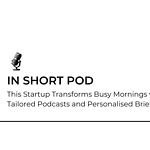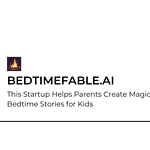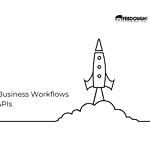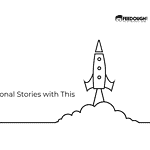Amidst overflowing inboxes, tech professionals and AI enthusiasts struggle to keep up with a torrent of email newsletters. The dilemma? Gaining valuable insights buried in countless unread messages while juggling a hectic schedule. Picture a world where languishing newsletters transform into personalised audio experiences, effortlessly fitting into your commute or workout routine.
Meet Jellypod, a promising startup on a mission to turn your favourite newsletters into bite-sized daily podcasts. Founded by ex-Amazon engineer Pierson Mark and Jason Alafgani, Jellypod recognises the pain of information overload and counters it with smart summaries, tailored just for you. Unlike the competition that generalises interests, Jellypod digs deep into niche sources for a curated audio journey.
With a focus on solving real problems, this fresh venture has sparked excitement among tech experts and venture capitalists alike. Curious about how this idea transformed from a simple wish to a compelling opportunity? We did an interview to find out more about the minds behind Jellypod and their innovative approach!
What is Jellypod?
Jellypod is a startup that transforms email newsletters into daily audio podcasts, allowing listeners to consume content during their daily activities. Imagine you’re commuting or exercising, and instead of scrolling through unread newsletters, you can listen to curated summaries. This approach caters particularly well to tech professionals, AI enthusiasts, and venture capitalists who often find themselves overwhelmed by a constant influx of information.
The primary challenge Jellypod addresses is the struggle to sift through numerous newsletters that often go unread due to time constraints. By converting these texts into concise audio snippets, Jellypod streamlines the listening experience, allowing users to stay informed without needing to devote extra time to reading.
What sets Jellypod apart is its commitment to niche interests. While many competitors offer generalised content, Jellypod focuses on specially curated newsletters, ensuring users receive tailored information that resonates with their specific interests. This focus on personalisation means listeners are more likely to engage with the content delivered to them, enhancing their overall experience.
Jellypod Founders
Meet Jason Alafgani and Pierson Mark, the dynamic founding team of Jellypod. Drawing on their extensive backgrounds in technology and product development, these innovators are on a quest to transform how users engage with digital content. Jason, with a distinguished history as the co-founder of HR platform Indi, brings a keen insight into user needs and growth strategies. Meanwhile, Pierson’s experience as a technical lead at Amazon Alexa lends the technical prowess required to shape Jellypod into a sophisticated, user-friendly platform.
Jellypod’s inception is rooted in both personal experience and professional expertise. Pierson often found himself wishing he could listen to his unread newsletters during his daily commute. This realisation sparked a deeper exploration of how to merge his passion for audio content with the prevalent issue of information overload. Jason, recognising the opportunity to cater specifically to tech professionals and AI enthusiasts, joined forces with Pierson to bring their vision to life.
In the early days, the duo faced challenges with onboarding, a crucial step for user engagement. They proactively sought feedback and conducted user interviews to understand pain points better. This hands-on approach allowed them to refine the onboarding process, creating a seamless experience that users appreciated and embraced.
Jellypod differentiates itself in the marketplace by focusing on niche interests rather than generalised content. This commitment to delivering tailored information from curated sources ensures that listeners connect more profoundly with the material, enhancing user retention. Through their combined work, Jason and Pierson aim to provide a unique audio experience that resonates with those who are often overwhelmed by information yet eager to stay informed.
Interview with Jason Alafgani, Founder, and COO of Jellypod
In an exclusive interview, Jason Alafgani, co-founder of Jellypod, shared insights into the workings and ambitions of his innovative startup. Here’s how the conversation unfolded:
Q: Could you introduce yourself and your role at Jellypod?
A: Sure! I am Jason Alafgani, the Founder and COO of Jellypod.
Q: What exactly does Jellypod do?
A: Jellypod helps people listen to their email newsletters as a daily personal podcast. We specifically serve tech professionals, AI enthusiasts, and VCs, focusing on solving the issue of too many quality newsletters in our inboxes and no time to read them all. We digest all of your favourite newsletters and give you daily summaries, so you don’t have to read them.
Q: Tell us about Jellypod’s founding team.
A: Our team consists of myself, Jason Alafgani, and Pierson Mark. Pierson was the technical lead at Amazon Alexa, and I previously founded the HR platform Indi, which was used by companies like Atlassian, Alliant, and Hashicorp. Pierson is the CEO and technical co-founder, while I serve as the COO and growth co-founder. Together, we bring over two decades of combined experience in voice, automation, and personalisation to help people.
Q: What inspired you to venture into this particular industry?
A: The idea came from Pierson, who had a 20-minute walk to work and often listened to podcasts during that time. He wished he could listen to his unread newsletters instead. That realisation led us to explore this concept further.
Q: Can you share some details about the early days of Jellypod?
A: One of our initial challenges was the onboarding process. We planned a few options, conducted user interviews, and settled on a streamlined onboarding system that our users loved. This hands-on approach helped us create a seamless experience.
Q: How does Jellypod differentiate itself from competitors?
A: Many competitors transform your general interests into personalised podcasts. We believe focusing on niche interests and sources leads to better content, and those niche sources are best found in email. This emphasis on specificity helps us stand out.
Q: Has Jellypod received any external funding?
A: No, we’ve not received any external funding yet.
Q: What are Jellypod’s plans for the future?
A: We aim to help people get more out of their content by expanding to more content sources and various media types.
Q: Regarding revenue, can you provide some figures?
A: Currently, we make zero revenue per month, serving zero customers on average per month. However, our growth percentage year on year is 100%.
Q: Any advice for aspiring entrepreneurs?
A: Definitely. Focus on honing in on a narrow pain point and solve it as clearly and simply as possible.
Q: Are there any statistics relating to your industry and startup you could share?
A: Yes, we are doubling our monthly active users every two weeks and have a 10% conversion rate from free to paid.
Feedough’s Take on Jellypod
Jellypod stands out as a beacon for efficiency and personalisation in the tech world. By transforming email overload into engaging audio experiences, they’re not just simplifying everyday tasks for professionals but are pioneerIng a significant shift in content consumption. This startup doesn’t merely adapt to the future; it shapes it, promising a robust solution to the information overflow that plagues our digital lives.
The real intrigue lies in their targeted approach. Unlike broader services, Jellypod’s commitment to personalised, niche content could deeply connect with users and foster strong user loyalty, which is critical for growth in the competitive tech landscape. Moving forward, Jellypod should continue to innovate and perhaps explore partnerships with content creators, which could diversify their offerings and enhance user engagement. Anticipate Jellypod to not only persist but thrive as they evolve in tune with their users’ needs.
A startup consultant, digital marketer, traveller, and philomath. Aashish has worked with over 20 startups and successfully helped them ideate, raise money, and succeed. When not working, he can be found hiking, camping, and stargazing.









